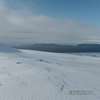
|
Wales, Alaska, United States

Robert Tokeinna and Olivia Lee /
LEO Network /
March 5, 2019
Wales lost shorefast ice early in the season. Ice along the shore has been crushed and broken. This is a very unusual event for Wales as many of our hunters rely on great ice conditions for whale and other sea mammal catch for food.
Read post on the LEO Network
|
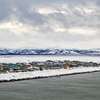
|
Unalakleet, Alaska, United States

Zachariah Hughes /
KNOM Radio Mission /
March 12, 2019
Usually, in March, the Bering Sea ice is reaching its thickest extent. But from the beach in Unalakleet, the full horizon is blue ocean water, punctuated infrequently by lone icebergs.
Read article
on KNOM Radio Mission
|
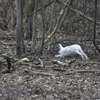
|
Kuopio, Northern Savo, Finland
 Yle Uutiset
Yle Uutiset /
March 14, 2019
The latest statistics on the mountain hare (or blue hare) population of Finland, for instance, show that the species' numbers are plummeting while the European (or brown) hare is thriving, especially in southern parts of the country.
Read article
on Yle Uutiset
|
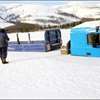
|
Promyshlennyy, Komi Republic, Russia
 Siberia Times
Siberia Times /
March 10, 2019
Stuck in ice, two trucks of a local silver mining company got trapped more than a month ago. Drivers have to live nearby as they keep trying to remove their vehicles.
Read article
on Siberia Times
|

|
Wekweètì, Northwest Territories, Canada

Gabriela Panza-Beltrandi /
CBC /
March 19, 2019
A late start means the community of just over 130 must rely more heavily on air transport, which adds to the cost of goods brought in town.
Read article
on CBC
|
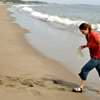
|
Gambell, Alaska, United States

Diana Haecker /
The Nome Nugget /
March 9, 2019
Since 2014 St. Lawrence Islanders have been collecting sea water samples, knowing that the radiation would eventually show up. Now the signature of Fukushima has finally been identified, the northern most sample evidence of the plume. Fortunately the levels are low.
Read article
on The Nome Nugget
|